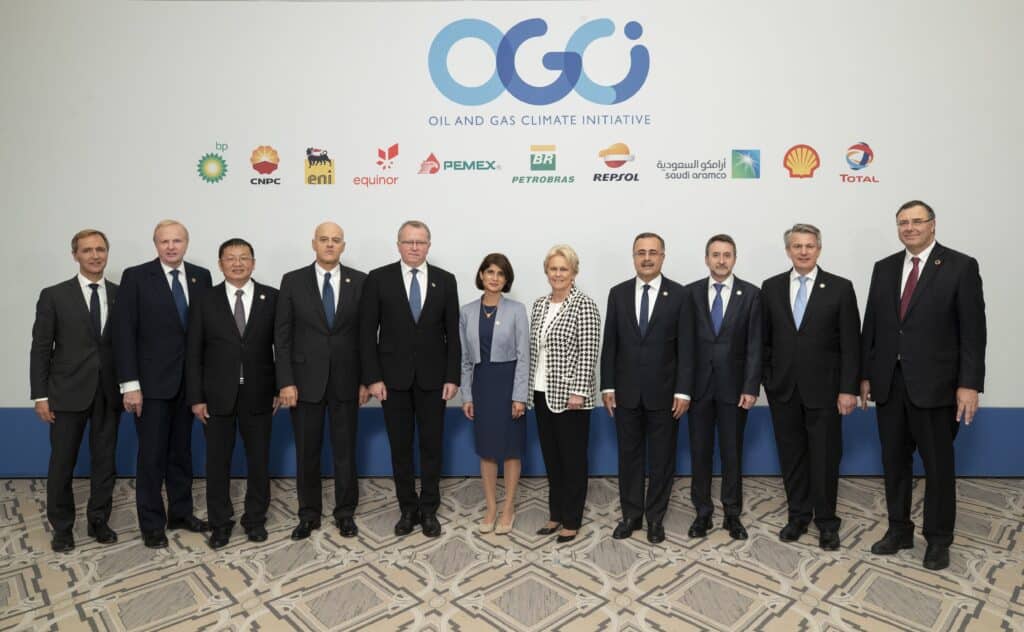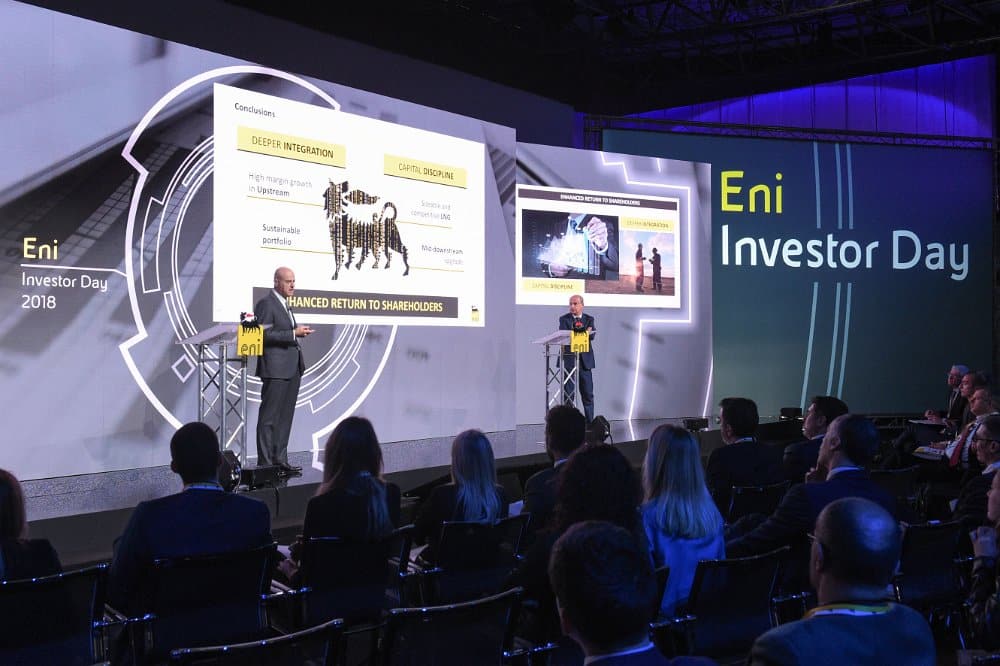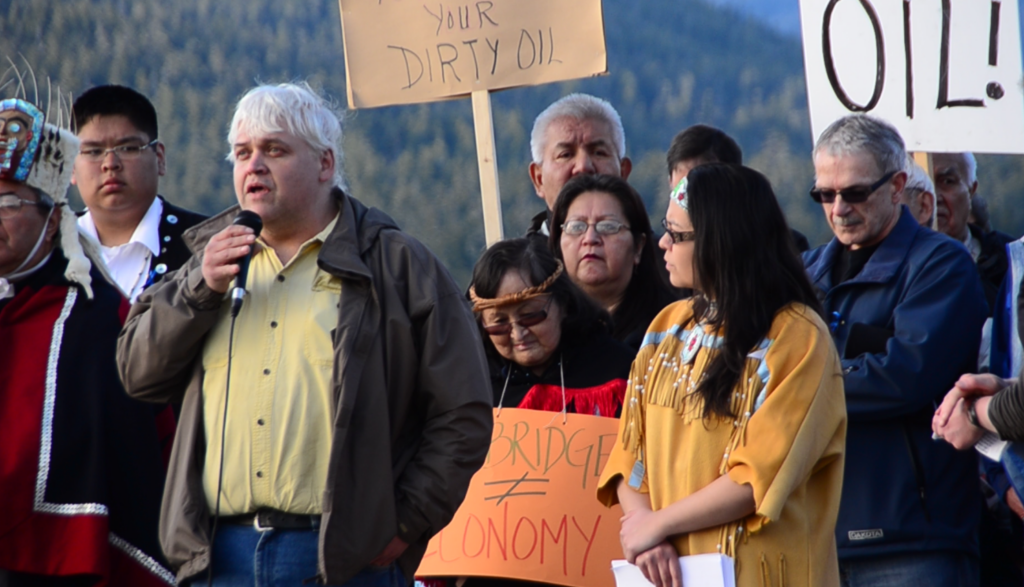An Italian social scientist and professor, Marco Grasso, has resigned from his post as director of a research unit at Università degli Studi Milano-Bicocca (UNIMIB) in Milan, Italy, over the academic institution’s partnership with oil and gas major Eni, DeSmog can exclusively report.
In February this year, UNIMIB and Eni signed a five-year “Joint Research Agreement,” (JRA) in which the university and the fossil fuel company pledged to collaborate on “research projects of common interest” related to the energy transition, according to an Eni press release. In a video promoting the partnership, the company’s CEO Claudio DeScalzi said it would be “crucial for the [energy] transition but also the transformation of Eni.”
After attempts at sending protest letters and months of the university’s unwillingness to provide clarification regarding funding and management of the partnership, Grasso decided to resign from his post as director of the “Anthropocene” research unit at the university’s Center for Interdisciplinary Studies in Economics, Psychology, and Social Sciences (CISEPS). The Anthropocene unit works on issues related to the energy transition, among other things, which is also a focus of the university’s JRA with Eni.
On February 15th, UNIMIB shared the news of the JRA with Eni in the “energy transition field” and stated it relates to research areas such as batteries, geothermal, “environmental applications,” and magnetic fusion, amongst other things. On the same day, Eni also tweeted about the news, mentioning technology as “key” to “achieving complete decarbonization.”
“I think that a university shouldn’t sign research agreements with fossil fuel companies,” says Grasso who, in Italy, is one of the few experts who are vocal about climate change denial, fossil fuel greenwashing, and disinformation on the climate crisis. “Through association with academic institutions, [these companies] achieve legitimacy and consensus, and maintain a social license to operate.”
Although Grasso has resigned as director of the Anthropocene research unit at CISEPS, he will be retaining his role as a professor of political geography in the department of sociology and social research at UNIMIB. Grasso is also the author of many books, including “From Big Oil to Big Green” and is a scholar at the Climate Social Science Network at Brown University.
Despite net-zero pledges and official announcements of commitments to the energy transition, a recent analysis by Oil Change International has found that major U.S. and European oil and gas companies, including Eni, still “failed to meet the bare minimum” in relation to the 1.5°C Paris Agreement target. The climate pledges of the eight companies assessed in the analysis, which “have collectively done the most to fuel the climate crisis…[are] grossly insufficient,” the report says. The companies “cannot be trusted to confront it meaningfully.”

UNIMIB is only one among the numerous universities, academic institutions, and research centers in Italy who have entered agreements with the Italian oil and gas company, all of which have very rarely been the subject of controversies at the national level, Grasso explains.
“I have rarely heard anyone from the Italian academic and scientific world saying the slightest thing against Eni’s involvement [with academic institutions and universities],” he says. Outside of climate movements and environmental organizations, it isn’t considered an issue, he adds, to the point that the Italian Ministry of Education has even launched the Digital and Ecological Transition High School in partnership with Eni and pipeline operator SNAM.
“Many universities in the USA and other countries are dropping fossil fuel projects and partnerships, they are divesting. Here in Italy, we are going backwards, and universities are still signing these agreements,” Grasso says. “Here, money doesn’t smell.”
In the UK, more than 99 universities have committed to divest from fossil fuels in the past few years and, this year, in the United States, students have filed legal complaints against leading universities, like Yale, MIT, Princeton, and Stanford, for their continued involvement with fossil fuel companies. These actions followed similar initiatives at Harvard and Cornell, which then announced they would phase out fossil fuel investments. This pressure also stems from the Fossil Free divestment movement, started in 2012 by environmentalist and author Bill McKibben and 350.org, an international movement working to end fossil fuels. Students have also begun protesting at fossil fuel companies’ recruiting events, as Emily Sanders reported in ExxonKnews.
Earlier this year, science historian Naomi Oreskes turned down an invitation to speak at Stanford’s Doerr School of Sustainability because of its partnership with fossil fuel companies like Exxon. Exxon was “the first to invest in universities specifically as a way to try to ensure a particular social, economic, and political context for the company to operate within,” tweeted investigative climate journalist Amy Westervelt, whose Drilled podcast contains a series on fossil fuel companies’ strategies and investments in education.
“In Italy, awareness is lacking,” Grasso explains. “If a university had research agreements with the tobacco industry, it would be socially condemned. But when it’s a fossil fuel company in Italy, even though it produces harmful products, this doesn’t happen.”
Grasso says he never received an official communication from UNIMIB about the agreement with Eni and that, for months, he has been requesting information and clarification of the agreement from the vice dean, without any concrete results.
UNIMIB did not respond to a request for comment from DeSmog on its joint research agreement with Eni.
“I’ve been working in the field for years; this complete unreceptiveness to requests for information on the part of the university seems to me like a real paradox,” Grasso says. “They either don’t want to talk about it or think it’s better not to talk about it with anyone who isn’t already involved.”
“It’s important to talk about this [academic institutions’ agreements with fossil fuel companies like Eni] because it’s very serious,” says Grasso, “and in Italy it’s not acknowledged as an issue.”
Subscribe to our newsletter
Stay up to date with DeSmog news and alerts







